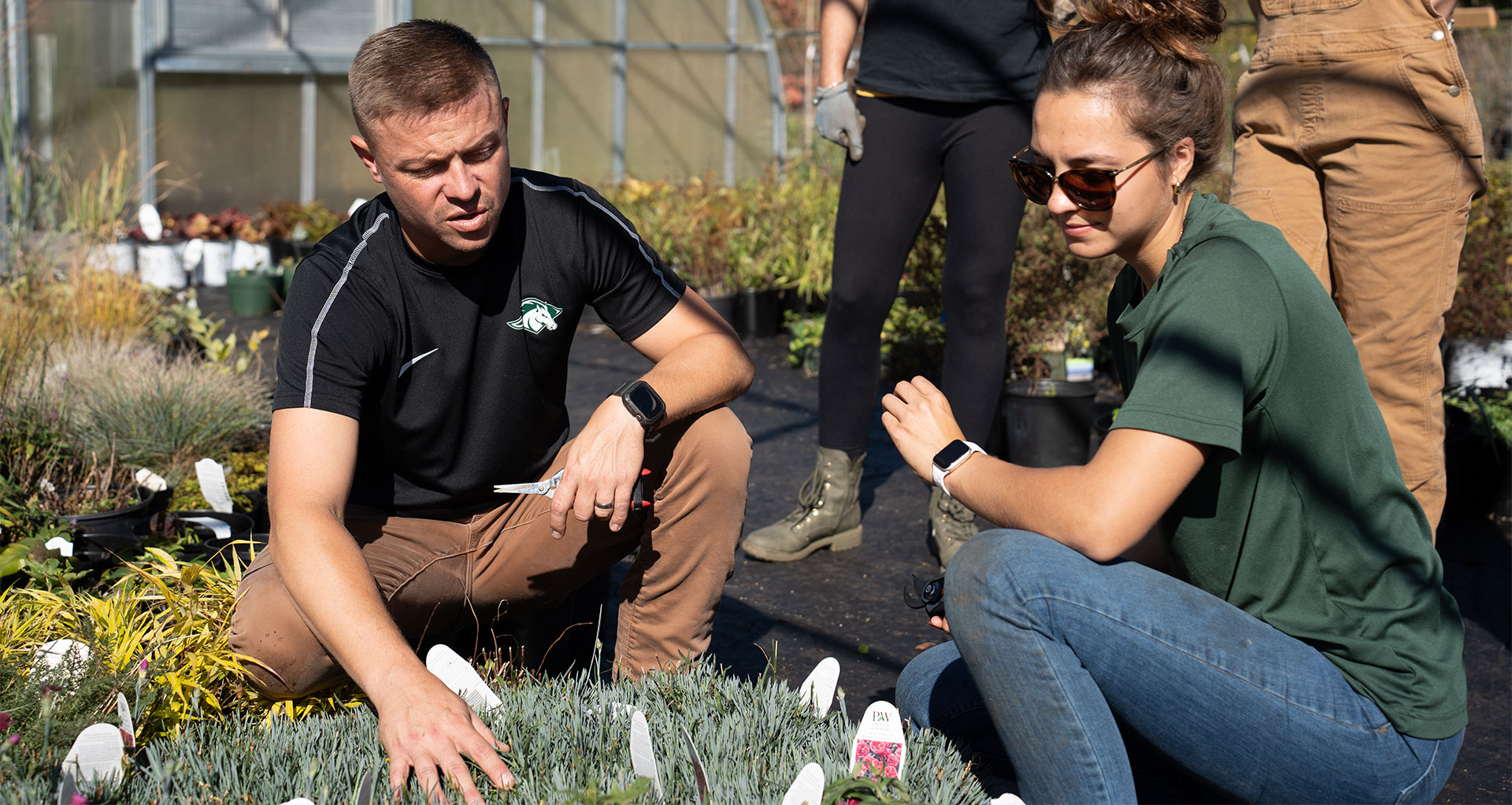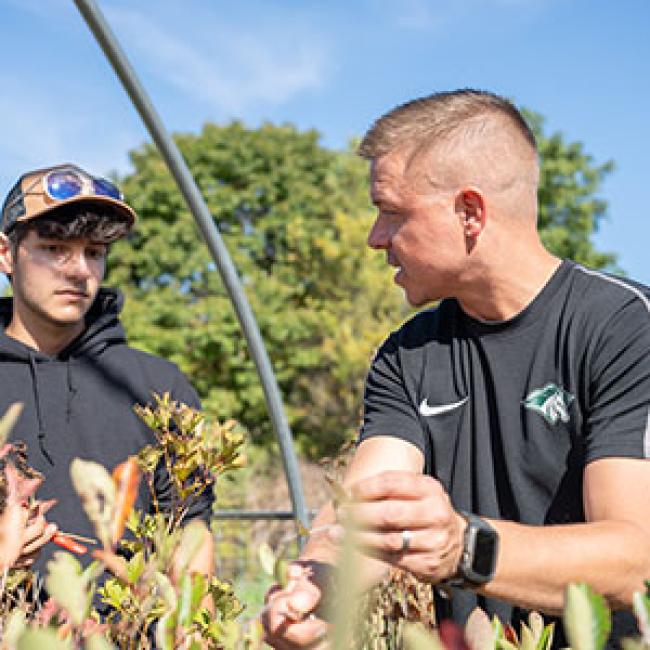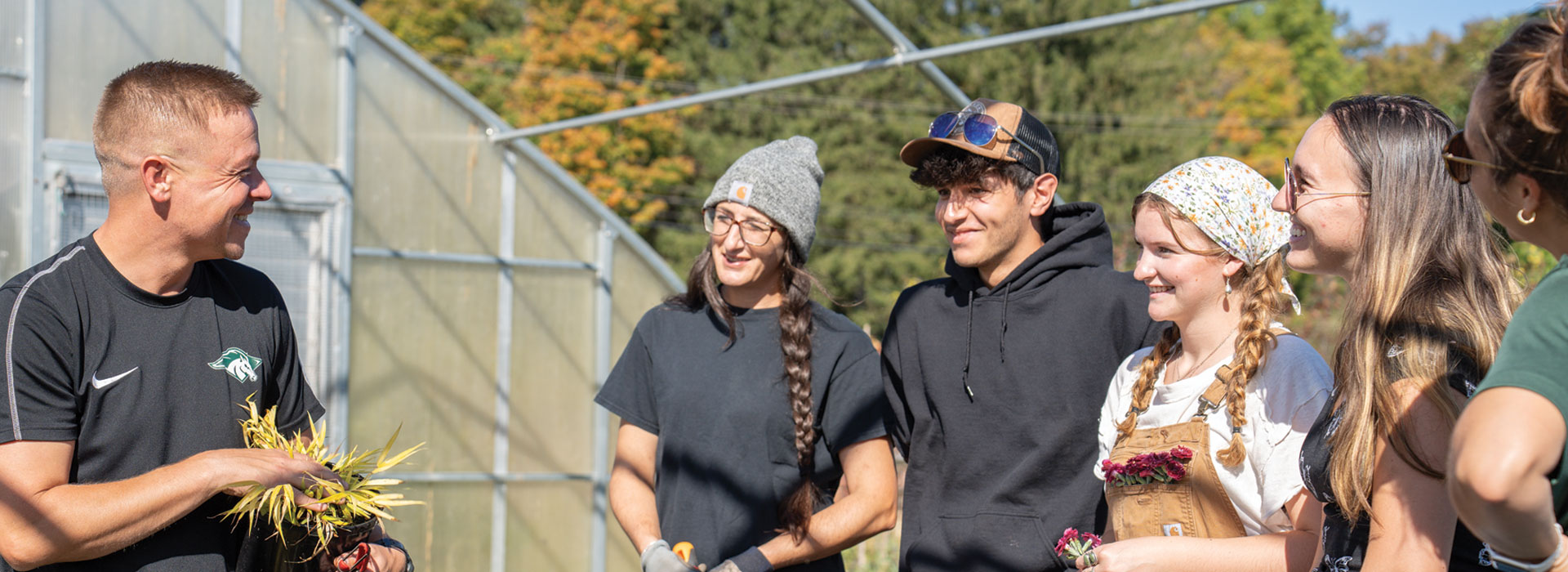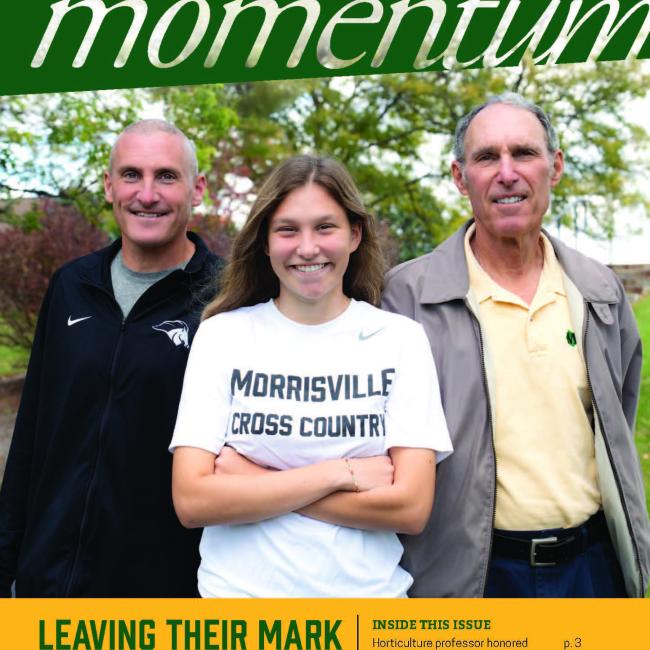Adam Olinski is planting big ideas and harvesting abundant success.
The SUNY Morrisville assistant professor of horticulture recently received the New York State Nursery and Landscape Association President’s Award, a top honor in his field. It recognizes three educators for outstanding work in advancing the Empire State’s green industry.
“I was really surprised,” he said in a recent interview, “and very honored.”
That career milestone has motivated Olinski to dig deeper and work even harder. Now, he’s focused on planting millions of trees in Madison County under another state green initiative. He wants to develop and promote horticulture therapy programs to help military veterans who suffer from post-traumatic stress disorder (PTSD). He also hopes to create new courses and certifications within SUNY Morrisville’s School of Agriculture, Business & Technology.
“I’m thrilled to promote this industry,” he said. “The work never stops. We have to keep changing and keep pushing forward. We want kids to get into industries that they haven’t thought of yet.”
Olinski’s journey began in a small family garden in Orange County, near the Catskills.

As a toddler, he was drawn to the soil, helping his grandparent, a Polish/Ukrainian immigrant, cultivate vegetables for the Eastern European cuisine his family enjoyed so much. He learned about the fruits of labor early on. For his Eagle Scout project, he landscaped the town museum.
“That jumpstarted me,” he said.
Olinski balanced his passion for horticulture with soccer and baseball and, after graduating from high school, enrolled at SUNY Delhi, majoring in landscape construction. His fondness for the design side of growing and planting inspired him to further his education at SUNY Environmental Science and Forestry (ESF) in Syracuse, New York, where he completed a master’s degree and studied abroad in Sicily. During his graduate work at ESF, Olinski became interested in teaching.
Olinski worked at a local landscape architecture firm on many building design projects, including the outdoor turf field at Jamesville-Dewitt High School, while gaining experience in academia.
At SUNY Morrisville, he worked as an instructional support assistant before his current position, where he has helped to grow a horticulture program that now goes beyond instruction on traditional cultivation, including hydroponics, CAD design and certified organic crop farming.
He also built a large greenhouse and played a key role in developing “stackable credentials” (microcredentials) specific to cannabis, specialty crops, pesticide applications and hydroponics that allow students to pinpoint their interests and gain additional experience while pursuing their degree.
He has a special interest in sustainability efforts, noting that before the COVID-19 pandemic, certified organic crops grown on the college’s Four Seasons Farm were provided to campus dining halls. Olinski’s students have been prepping wildflower seeds that will be planted this semester in a meadow near the Spader Horticulture Complex. The changed landscape will require less mowing, lower emissions and foster increased pollination.
I’m thrilled to promote this industry. The work never stops. We have to keep changing and keep pushing forward. We want kids to get into industries that they haven’t thought of yet.
Morrisville is eyeing becoming part of the New York State Department of Environmental Conservation Reforestation Project, which aims to plant 25 million trees across the state by 2033. The school already has access to abundant rural woodlands and the people and programs available to access the developing forest as a learning lab. Olinski and his students have already started prepping the seeds, hopeful for a massive opportunity.
“They want an institution that has the infrastructure in place,” he said. “We would love to be one of their nurseries. We’re in the center of the state, there’s plenty of land, and it serves as a teaching tool with training possibilities.”
Olinski said an academic minor or certification program in horticulture therapy specific to military veterans would also be the first of its kind in New York State. He’s currently developing a draft for that curriculum.
“There’s something about plants that help with PTSD,” he said.
Adding to the program’s strength is a family atmosphere, where Olinski prefers that all students and coworkers refer to him as Adam. Whether the classes are cultivating poinsettia plants, holiday wreaths, hanging baskets or other floral arrangements to beautify campus events or sell to the community to help offset program costs, everyone – teachers and students – gets their hands dirty the same way.
“You have a better built-in working relationship with them,” he said. “There’s something to be said about that personal touch we give.”
Olinski’s enthusiasm and vision have been instrumental in leading the college to its 11th consecutive Tree Campus USA designation, by the Arbor Day Foundation, spiriting students to join in campus tree plantings.
Off campus, Olinski is involved with competitive youth soccer. He led the Syracuse Rush under-18 girl’s travel team to a New York West state championship last year. He’s helped coach SUNY Morrisville’s teams on a volunteer basis in the past and served as an assistant for the women’s team his wife, Mandy, coaches at SUNY ESF. Their daughter, Norah, was born on New Year’s Day in 2023.
“It’s a lot to juggle – teaching, family and soccer,” said Olinski, who also played baseball at Syracuse University when he was a student at ESF. “But I really enjoy it all. I’m competitive by nature, so sports are a great outlet.”

Olinski and his students have a strong partnership with the Morrisville-Eaton Central School District, where SUNY Morrisville alumna Rebecca Werbela ’04 heads the middle and high school horticulture program and advises the district’s Future Farmers of America (FFA) chapter. His work has included providing guidance, equipment and labor for raised garden beds and wreath-making projects.
“This is one of the many ways we are helping to promote agriculture in our local school and community,” he said of his tireless efforts.
Werbela, who is now in her sixth year of teaching, said approximately 200 to 400 students participate in her classes or FFA each year. One of the high school agriculture courses provides SUNY Morrisville credits should students want to continue their education at her alma mater.
“Adam has been fabulous,” she said. “If I have a question, he’s always there to answer it right away. My horticulture program wouldn’t be where it is today without Adam and SUNY Morrisville.”


